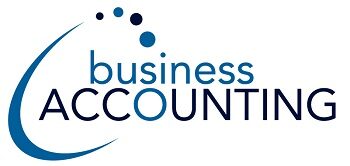Entrepreneurship is not an exact science. As I often say during my conferences and workshops: The only certainty in entrepreneurship is that it will not happen as you expected!
That said, there are some good business start-up practices that have been validated time and time again and in different contexts.
Since many entrepreneurs ask me what are the success factors in starting a business, I offer you here a reviewed, corrected and improved summary of best practices in the field. Here are five keys to success in starting a business.
Model first, plan later
A classic mistake in starting a business is to start writing a business plan as soon as you have a business idea. Although the business plan has its usefulness in the process of starting a business, embarking on it too hastily puts the project at risk.
The business plan allows you to plan the operational, marketing, technological and financial aspects of your business. Before arriving at this obligatory passage, it is imperative to have first clarified its business model. This is the modeling stage.
The business model is the skeleton of the business. It is the basic structure around which the company’s activities and business projects revolve. If this basic structure is inadequate, the business project is in jeopardy.
Just think of the frame of a building. Long before thinking about plumbing or finishing, the frame of the building must be erected. It is this framework that will guide all the rest of the construction work.
There are different tools to model your business project. I always recommend My Business Model for its educational value and its freeness. That said, avoid embarking on a modeling process alone. Get support from a business start-up advisor.
To learn more about the benefits of the business plan in a business launch process, I invite you to read the article Declaration of love for the business plan.
The most successful start-up companies are those that have correctly identified their typical customer. Too many entrepreneurs try to reach everyone. It does not work! Never! By targeting everyone, entrepreneurs believe they increase their chances of closing sales. To be effective in your marketing initiatives, you need to have a clear message that really speaks to a specific type of customer. Thus, the latter will recognize himself through this message, but also through your offer.
Concluding a sale is therefore synonymous with targeted communication. Every dollar invested in marketing will be much more effective if you target a specific customer. So, avoid trying to get all the
Do you know the concept of love money ? In entrepreneurship, we speak of love money when the relatives of an entrepreneur, most often the members of his family, give him money or grant him an interest-free loan.
In my coaching practice, I have expanded the concept of love money to that of empathic resources. This includes all forms of aid, support, work or equipment loans that you can obtain from your loved ones. These people who are empathetic to your business project have in their possession many resources that will be useful to you. They will be more than happy to contribute to your project by lending them to you or by giving you their time.
I have seen countless entrepreneurs who have benefited from the time, effort and knowledge of those close to them. Well beyond money, all the human or material resources useful to your project must be mobilized from the start. Those who are most successful have often been there.
Build your working capital
Working capital is the oxygen of the business. Without cash, the business simply becomes insolvent.
Too many entrepreneurs incur costs without building up the small cash reserve of working capital.
Working capital is specific to each business. In other words, it must be calculated for each company according to different balance sheet items. For example, some companies will have customer accounts and some will not. That said, to simplify your life, simply calculate 3 to 6 months of fixed costs. For most entrepreneurs, this rough calculation is a good way to estimate their business’ working capital. My goal is to simplify your life and not give you an accounting course.
Simply remember that working capital is a small cash cushion that ensures the smooth continuity of your business operations. The most successful businesses have working capital to support day-to-day operations.
Listen to all advice, but only apply some
Since we are in the age of entrepreneurship, advisors, mentors, coaches and consultants abound. Despite the fact that many offer good advice to entrepreneurs, the fact remains that some have no idea of the entrepreneurial reality. They ride the entrepreneurial wave to sell consulting services whose scientific and praxeological foundations are sometimes questionable.
Unfortunately, there is not yet a professional order for business start-up advisors. It is therefore incumbent on entrepreneurs to make allowances and to discern the good from the bad advice. Currently, I am working to standardize the profession of business start-up advisor to make life easier for entrepreneurs. That said, you don’t currently have any expertise standardization resources.
However, do not deprive yourself of any advice. It has been demonstrated on several occasions that the many points of view on the same project positively evolve the business strategy of entrepreneurs. It is therefore essential for your success that you keep an open ear, while remaining critical.
What is the greatest danger when starting a business? Do you have a small idea?
The greatest danger when starting a business is that of dispersion. Overwhelmed by his ideas, his projects and the many avenues of development for his business, the entrepreneur must daily come back to the essence of his business project.
I have seen entrepreneurs embark on the process of acquiring a property, when it was not at all essential for their business project. I have also seen entrepreneurs get involved in projects that took them away from their primary mission and their typical clientele.
On a daily basis, it is very difficult to separate the projects, initiatives or opportunities that bring you closer to your final goal from those that take you away from it.
To help entrepreneurs stay aligned with the essence of their business project, I often do the key resources exercise. The exercise is very simple. Faced with a given opportunity, there are three questions to ask: (1) What is my business? (2) What key resources does my company need to be successful in this specific business (expertise, legitimacy, efficiency, customer relationship, experience, training, etc.)? (3) How does this specific opportunity help my business acquire or maintain these key resources? If the entrepreneur cannot answer the third question, then the opportunity should be dismissed. This exercise can be repeated each time an opportunity arises to know whether it should be exploited or not.
As you will have understood, dispersion is the plague in entrepreneurship. It must be avoided at all costs. The most successful companies are those that stay focused on their distinctive advantage and manage to align all their actions with maintaining and developing this distinctive advantage.




